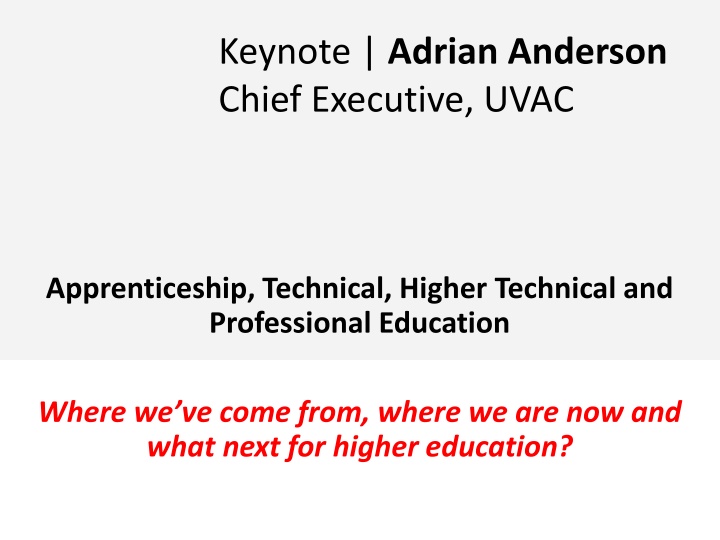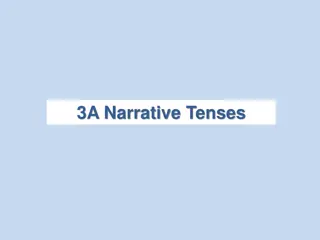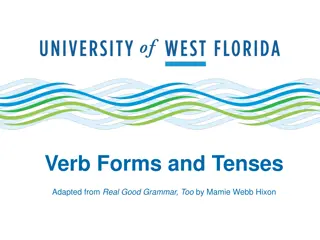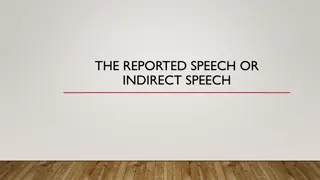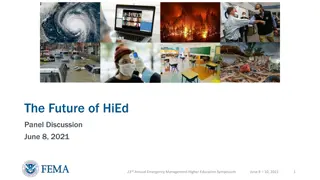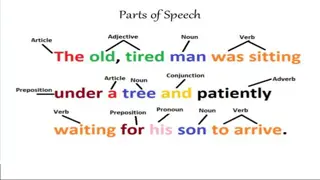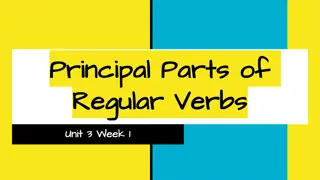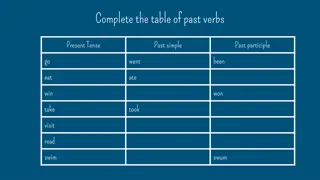Evolution of Higher Education: Past, Present, Future
Reflecting on the historical and current landscape of higher education, this content delves into the shifting paradigms, government initiatives, and the role of vocational qualifications. Explore the advancements, challenges, and potential transformations in the realm of apprenticeships and skills development.
Download Presentation

Please find below an Image/Link to download the presentation.
The content on the website is provided AS IS for your information and personal use only. It may not be sold, licensed, or shared on other websites without obtaining consent from the author.If you encounter any issues during the download, it is possible that the publisher has removed the file from their server.
You are allowed to download the files provided on this website for personal or commercial use, subject to the condition that they are used lawfully. All files are the property of their respective owners.
The content on the website is provided AS IS for your information and personal use only. It may not be sold, licensed, or shared on other websites without obtaining consent from the author.
E N D
Presentation Transcript
Keynote | Adrian Anderson Chief Executive, UVAC Apprenticeship, Technical, Higher Technical and Professional Education Where we ve come from, where we are now and what next for higher education?
Happy 20th Birthday UVAC Life in 1999 UK No 1 Song Cliff Richard GCSEs A Levels Bachelor s Degree Master s Degree NVQs, NOS, GNVQs, Foundation Modern Apprenticeships, Advanced Modern Apprenticeships, technical certificates TECs, RDAs, NTOs HNCs, HNDs, professional qualifications, work-based learning Life in 2019 GCSEs A Levels Bachelor s Degree Master s Degree Occupational Standards, T levels, Higher Technical Qualifications, Institutes of Technology, Intermediate, Advanced, Higher and Degree Apprenticeships LEPs HNCs, HNDs, Foundation Degrees, professional qualifications, work-based learning
A Lot of Water Under the Bridge Graduate Apprenticeships (in England) 14 19 Diplomas Qualification and Credit Framework Sector Skills Councils
What Can we Learn from History? Change and here today gone tomorrow Government programmes and initiatives that re-invent wheels and that are too important to fail Higher Education has always had a role in vocational qualifications and skills often tangential to skills policy, in policy terms if not in reality FE = skills, HE = academic education BUT substantially more focus on the importance of HE to the skills agenda e.g. through Higher and Degree Apprenticeships and Higher Technical Qualifications We re on the verge of something special with Degree Apprenticeship over 100 HEIs on the ESFA register, an academic and vocational choice, the best of both worlds etc. BUT will the overspend of the levy pot mean restrictions?
Sorry The Election Look at how we can improve the working of the Apprenticeship Levy New National Skills Fund Worth 3bn 50,000 extra nurses Significant numbers of new UK apprenticeships for all big new infrastructure projects hospitals, schools Conservative Labour will make it easier for employers to spend the levy by allowing it to be used for a wider range of accredited training.. - Will launch Climate Apprenticeships expect to allocate 25% of funds in levy accounts to train climate apprentices - Targeted bursaries Levy Transfer to SMEs increase rate to 50%... - Labour Skills wallets for every adult ( 10K) to spend on education and training through out their working lives. Providers monitored by OfS. Expand Apprenticeship levy into a wider skills and training levy 25% going into a social mobility fund. Develop National Colleges in key sectors to deliver higher level vocational skills. Identify and seek to solve skills gaps .. by expanding FDs, HNDs, HNCs and Higher Apprenticeships Liberal Democrats
Why is Higher Education often seen as the Problem rather than the Solution to Skills Provision? The debate is pitched as university OR technical/vocational/Apprenticeship options We remain far too obsessed by the A level and university route. relative to other European Countries, we have more young people following these routes and far fewer studying for higher-level technical and vocational qualifications Paul Johnson Director of the Institute for Fiscal Studies (and alumni Keble College, Oxford) The Times, 28 October 2019 University and Apprenticeship comparing Apples and Pears. Apprenticeship historic dominance of level 2 and 3 provision in 17/18 - 87% Levy could limit youth training large employers are spending more of their levy than expected this is linked to a sharp rise in more expensive higher and degree apprenticeships and large businesses wanting to recover levy funds as possible. Learning and Work Institute, 28 October 2019
Why is Higher Education often seen as the Problem Rather than the Solution? The Learning and Work Institute calls on measures to dampen the growth of higher and degree apprenticeships for older workers and proposes that: Employers provide 50% of the cost of apprenticeships at level 4 and 5, and 75% of the cost of apprenticeship at level 6 and 7 for those aged 25 and over. This funding to be provided by employers from outside their Levy payments. The Learning and Work Institute is a policy, research and development organisation dedicated to lifelong learning, full employment and inclusion. The LWI report and recommendations based on a survey of training providers conducted by AELP. It would seem more appropriate for apprenticeships at level 6 and above to be funded from the higher education teaching budget. AOC in its recommendations on the 2020-1 spending round. AELP has for some time held a similar policy position
Apprenticeship (and Technical Education) Where Does HE Fit? An Employer-Led Productivity Programme Focused on Tackling Skills Gaps and Shortages in the Public and Private Sector (as promised by BIS) supported by UVAC, some large private and public sector employers, potentially some key Govt departments, DoH, Home Office A Programme for Young People, prioritising level 2 and 3, the have-nots , needed to support the 50% not going to university and to deliver the Government s 3 million starts commitment (actually in statute) supported by AELP, AoC, FSB (and SMEs)?, Make UK, FAB, FE Week, LWI, Ofsted Technical Education part of OR an alternative to Higher Education? Our Task To demonstrate universities are a key partner, through Apprenticeship and Technical Education in tackling skills gaps and shortages, raising productivity and supporting social mobility. What s the position of the Treasury, BEIS?
T Levels The View from the Bridge It is apparent that T levels are now yet another in a long line of government projects that have been deemed too important to fail, despite a long and failure- strewn history of reform to vocational qualifications. Does anyone (not least the DfE) remember 14 19 diplomas to which T levels bear a strong family resemblance? Professor Ewart Keep (Department of Education, University of Oxford), FE Week, 15 May 2019 It will be very challenging to ensure T levels are taught to a consistent high standard Jonathan Slater, Permanent Secretary, DfE June 2018 Leave it a year before taking T Levels, the Skills Minister Anne Milton says that as a parent she would advise her children to hold off the flagship qualifications TES, 17 July 2018
T Levels and 16 18 Provision The DfE Position T levels will become one of the main choices for students after GCSE alongside: Apprenticeships for students who wish to learn a specific occupation on the job A levels for students who wish to continue academic education We are currently reviewing post-GCSE qualifications to create a simpler, high- quality system that students, parents and employers will all understand. Source - How T Levels will Work with Other Qualifications Introduction to T Levels , DfE 7 October 2019
So What Next for the Applied General? Around 200,000 16 18 year-olds took Applied Generals or Tech Level qualifications in 2018 In comparison, around 300,000 16 18 year-olds took A levels Some students took a combination of qualifications Around 20% of 18 year-olds applying to university hold at least one Applied General/Tech level Source: Phil Beach, Ofqual blog 18th April 2019 Figures vary substantially but for some HEIs around 40% of their intake had an Applied General which have an important role in widening participation So what next for HE admissions if no Applied Generals are offered?
T Levels and Higher Education? Rollout Sept 2020 Digital Route (digital production, design and development); Education and Childcare Route (education) Construction Route (design surveying and planning). Second wave Sept 2021 Digital Route (digital support and services, digital business services); Construction Route (onsite construction, building services engineering); Health and Science Route (health, healthcare science, science). T levels will develop the knowledge and skills needed for progression into skilled employment or to higher technical training including apprenticeships and higher education. Although T Levels are primarily designed as a direct route to skilled employment, they will make good preparation for students wishing to progress to HE in related technical areas. It is important that we assure potential students and their parents that T Levels are recognised as a pathway to HE. This is time critical with wave 1 T Levels delivered from September 2020. T levels will receive UCAS points in line with A levels Source DfE (presentation to UVAC HE and AO Vocational Qualifications Committee)
Will T Levels Support Progression to Higher Education? Take-up Availability of Industry Placements - Classroom learning 80% and 20% off the job (315 420 hours) Will the industry placement limit provision in many localities? Teaching staff and facilities massive investment, but will it deliver? T levels cannot be combined with A levels maths requirements for STEM programmes? Level of HE awareness and engagement, programme design and admissions.
Higher Technical Qualifications A Solution Looking for a Problem? Higher Technical Qualifications IfATE kite marked level 4 and 5 qualifications against Occupational Standards (developed for Apprenticeships) Purpose enhance take-up of level 4 and 5 technical qualification and tackle skills gaps and shortages Support marketing, recognition, consistency, better funding!
The Level 4 and 5 Gap Qualifications in England Source DfE % of adults holding a level 4-5 qualification as their highest
Are Higher Technical Qualifications the Solution? Examples of major skills gaps and shortages in the UK economy: Nursing shortages of nurses set to rise to 70,000 within 5 years and 100,000 in 10 years Skills Shortages in the UK Economy, Edge, July 2019 Management Most experts agree good management is key to improving productivity. It is clear the (manufacturing) sector needs to invest in upskilling the next generation of managers now. Steve Harris, Head of Manufacturing at Lloyds Bank August 2019 Construction The Federation of Master Builders quarterly state of trade survey showed of construction SMEs - 68% struggled to hire bricklayers - 63% struggled to hire carpenters and joiners Edge, April 2018 .
Higher Technical Qualifications What they Mean for Higher Education Overall Take-up/Acceptance? Difference in sectors? Position of PSRBs? Take-up by individuals who would have stopped at level 3 and/or those who would have taken a bachelors degree. Competition Ofqual regulated Awarding Organisations, further education colleges, independent training providers. Process national kite marking system, kitemarking of qualifications of different sizes, that partly meet the KSB of an Occupation Standard.
Degree Apprenticeship A Brilliant UK Invention The best of both worlds a job, salary and degree Parity of esteem - an academic and vocational choice Apprenticeships tackling skills gaps and shortages from level 2 to level 7 New progression pathways to the professions/higher level job roles that can support social mobility Other views: The middle class land grab? Fears valid Anne Milton, March 2018 The rise in existing graduate schemes being rebadged as apprenticeships at the expense of the third of students who leave school without a full level two. Amanda Spielman, Ofsted, December 2018 Apprenticeship budget overspend in large part due to the growing number of expensive management apprenticeship starts FE Week, December 2018
Higher and Degree Apprenticeships High Risk Levy pot overspend 2019/20 0.5bn, 2021/22 1.5bn. No money left for SMEs? Now - Level 6 and 7 11% of starts and 25% of funding, growing not just to 50% of the funding available, but possibly 100%. A cliff edge and hard choices. - Source: AELP - Why is the Levy Running Dry? So presented as a simple policy decision for Ministers: It would seem more appropriate for apprenticeships at level 6 and above to be funded from the higher education teaching budget. AoC in its recommendations on the 2020-1 spending round. AELP has for some time held a similar policy position. A similar position to Learning and Work Institute and some employer groups. The Learning and Work Institute even does the maths its restrictions on level 4 7 Apprenticeships would save 318m. UVAC Comment - So preventing the NHS, Police etc. spend THEIR levy on nurses, police constables and using such funds to train lower level Apprenticeships in the private sector in whatever occupation at whatever age saves the Treasury 318m?
Higher and Degree Apprenticeships High Risk The regional argument? On Apprenticeship Resources and choices should be better focused on the levels and sectors that both Greater Manchester and Augar have identified. This means cutting back on the highest level apprenticeship programmes (at high cost) and on many lower level apprenticeships in low pay sectors. Source - Andy Westwood, University of Manchester, Apprenticeship Funding Issues for Greater Manchester, Future Proofing Apprenticeship Funding in England for the 2020s, NCFE/Campaign for Learning October 2019 UVAC Comment Really Andy? No management skills issues, no nursing recruitment issues, no desire to train more police constables in Greater Manchester? A Goldilocks economy not too high skilled not too low skilled?
Higher and Degree Apprenticeships Niche Provision? Increasing number of universities with 1,000+ Apprentices significant planned growth Some smaller HEIs where Apprenticeships will account for more than 20% of their cohort Higher and Degree Apprenticeship key part of local skills strategies, partnerships with employers, link to research agenda etc. Relationships with key employers, police, NHS etc. strategies for widening participation
Degree Apprenticeships Will the Opportunity be Squandered by Poor Implementation? Rationing, first come first served, by limits on provider growth and funding bands set below cost The future of the levy - Change in co-investment, threshold for payment of Apprenticeship levy? Possible restrictions on Management Apprenticeships? Possible restrictions on Apprenticeship provision starting salary cap, age cap, level cap, prioritisation of new staff? Increasing restrictions on the specification of degrees as mandatory qualifications in Apprenticeships A policy prioritisation for young people, lower levels and the 50% not going to university?
Apprenticeship A Solution to the Levy Pot Overspend Fund 16 18 Apprenticeship Provision through General Taxation It is to say the least a little odd that the state pays through general taxation for A level, T level and applied general provision for 16 18 year olds, but employers are expected to pay through the levy for apprenticeship provision for this cohort. Why? Adrian Anderson, FE Week 27 September 2019 Ring fence the Apprenticeship levy paid by the public sector for the public sector Prioritise Apprenticeships in the private sector by Industrial Strategy priorities 95% Govt contribution or 75% Govt contribution
So Where Next? Lets Win the Debate! HE has a fundamental role in skills, technical education and apprenticeship which will increase productivity and social mobility Support UVAC (and Pearson, OCR) campaign for the retention of the Applied General Influence the T level and Higher Technical Qualification Debate Provide UVAC with evidence from employers and learners of the BENEFITS of Higher and Degree Apprenticeship productivity and social mobility And a few practical tips: Prepare for Ofsted Inspection (British Values, Integration of on and off-the-job learning , Governance) AND ESFA Audit (INA, price negotiation with employers and 20% off the job) approaches to EPA Deliver the Apprenticeship NOT just the Degree in accordance with the ESFA Funding Rules Talk to Rebecca and Mandy
